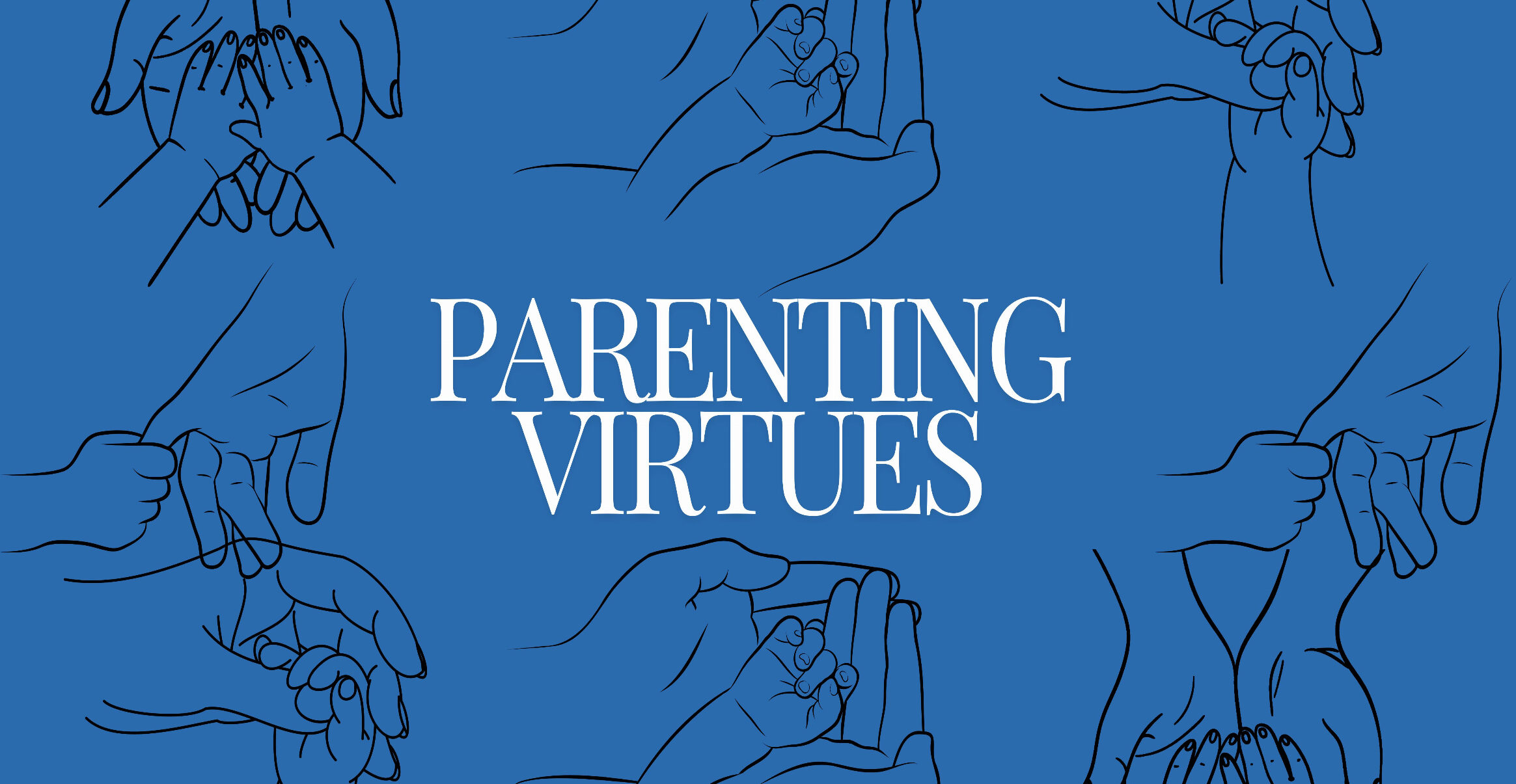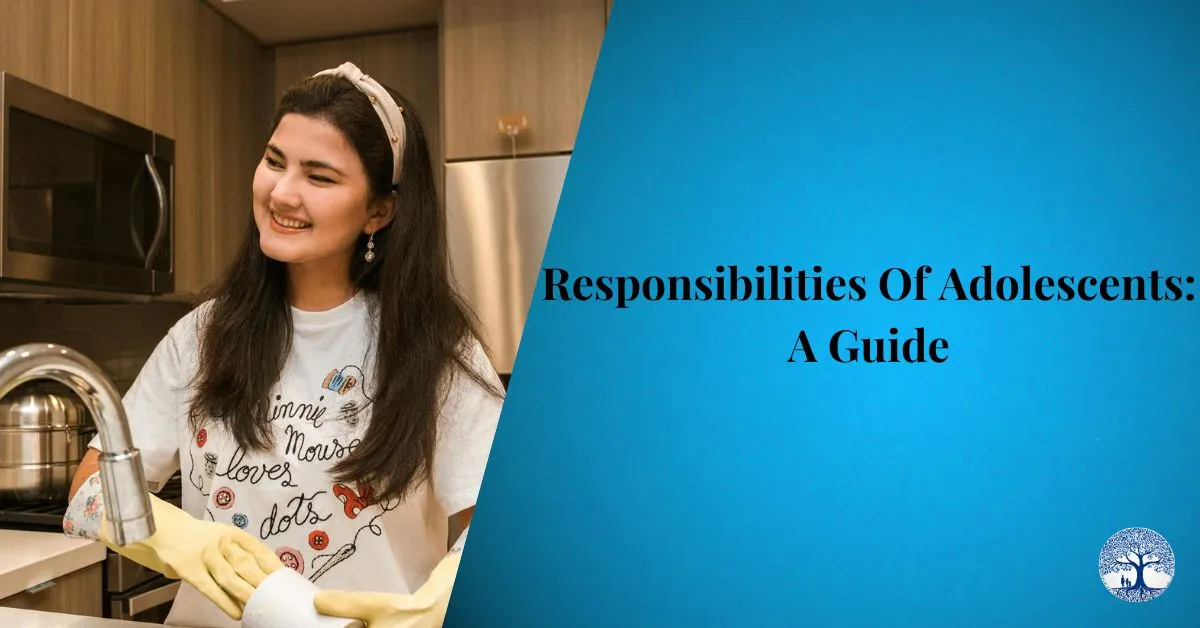Introduction
Adolescence marks a pivotal transitional phase, bridging the gap between childhood and adulthood. During this time, teenagers undergo significant physical, emotional, and cognitive changes that shape their future. Understanding the common responsibilities that come with adolescence is essential for fostering growth and maturity. These responsibilities, ranging from academic and household duties to personal and social obligations, play a crucial role in developing a sense of accountability and independence. For parents and guardians, recognizing and supporting these responsibilities is vital in guiding adolescents toward becoming responsible and well-rounded adults. For the adolescents themselves, embracing these responsibilities not only prepares them for the challenges of adulthood but also empowers them to make informed and responsible decisions.
Understanding Adolescence
What is Adolescence?
Adolescence typically refers to the developmental stage between the ages of 10 and 19, marking the transition from childhood to adulthood. During this period, individuals experience a whirlwind of biological, psychological, and social changes that significantly shape their identity and worldview. Adolescence is often characterized by rapid physical growth, hormonal changes, and cognitive development, all of which play a vital role in preparing teenagers for adult responsibilities and social roles.
Transition from Childhood to Adulthood
The journey from childhood to adulthood is a complex and transformative process. Adolescents begin to seek independence, develop a stronger sense of self, and explore their place in the world. This transition involves not only physical maturation but also a shift in emotional and social dynamics. Teenagers start to form more mature relationships, both with peers and family, and begin to understand the importance of responsibility, accountability, and decision-making. As they navigate this new territory, adolescents often face challenges that require them to balance the desire for autonomy with the need for guidance and support from adults.
How Responsibilities Evolve During Adolescence
As adolescents move through this critical stage of development, their responsibilities naturally evolve. What starts as simple tasks like doing homework or helping with household chores gradually transforms into more complex obligations, such as managing time effectively, making sound decisions, and contributing meaningfully to their communities. These responsibilities help adolescents build essential life skills, such as resilience, empathy, and problem-solving, which are crucial for their overall development. Understanding how these responsibilities change during adolescence is key for parents, educators, and teenagers themselves to foster a supportive environment that encourages growth, learning, and personal development.
Academic Responsibilities
Importance of Education in Adolescence
Education plays a foundational role in an adolescent’s life, serving as a gateway to future opportunities and personal growth. During this crucial period, adolescents are not only acquiring knowledge but also developing critical thinking skills, learning to solve problems, and preparing for higher education or vocational paths. A strong academic foundation can significantly impact an adolescent’s future, opening doors to better career prospects, financial stability, and personal fulfillment. Understanding the importance of education during adolescence helps teenagers realize the value of their efforts in shaping a successful future.
Role of Homework, Studying, and Maintaining Good Grades
Homework and studying are integral components of academic responsibilities that help reinforce the learning process and improve comprehension. Regular engagement with schoolwork allows adolescents to practice and refine their skills, ensuring they grasp key concepts and perform well in assessments. Maintaining good grades not only reflects an adolescent’s understanding and commitment but also builds a sense of achievement and confidence. For many teenagers, striving for academic excellence becomes a source of motivation, encouraging them to set higher goals and work diligently towards them.
Time Management and Balancing Schoolwork with Extracurricular Activities
One of the most significant challenges adolescents face is learning to manage their time effectively. Balancing schoolwork with extracurricular activities, such as sports, clubs, and hobbies, requires careful planning and prioritization. Developing good time management skills during adolescence helps teenagers allocate sufficient time for homework and studying while also engaging in activities that promote physical health, creativity, and social interaction. This balance is essential not only for academic success but also for overall well-being, allowing adolescents to grow into well-rounded individuals with diverse interests and skills.
By understanding and embracing these academic responsibilities, adolescents can build a strong foundation for future success. Encouraging them to focus on education, maintain good grades, and manage their time wisely equips them with the tools they need to navigate the complexities of both their present and future lives.

Household Responsibilities
Participating in Household Chores
Taking on household chores such as cleaning, cooking, and caring for pets is an essential aspect of an adolescent’s development. These responsibilities teach valuable life skills that are crucial for independence and self-sufficiency. By participating in chores like sweeping, dusting, or washing dishes, adolescents learn the importance of maintaining a clean and organized living environment. Cooking meals not only helps them appreciate the effort that goes into preparing food but also instills a sense of responsibility for their own nutrition and well-being. Caring for pets fosters empathy and a sense of duty toward another living being, enhancing their understanding of commitment and routine.
Managing Personal Spaces
Managing personal spaces is another critical household responsibility for adolescents. Keeping their room tidy and organized helps them develop organizational skills and a sense of ownership over their environment. Learning to maintain a clutter-free space not only creates a more pleasant living area but also fosters mental clarity and focus, which can positively impact their academic performance and emotional well-being. By taking responsibility for their own space, adolescents also learn to respect shared areas in the household, promoting harmony and cooperation among family members.
Contributing to Family Tasks and Helping Out
Beyond personal chores, contributing to broader family tasks is vital in teaching adolescents about teamwork and collective responsibility. Helping out with siblings or elderly family members, for example, can be a rewarding experience that strengthens family bonds and teaches valuable lessons about empathy and patience. Engaging in family tasks, such as grocery shopping, yard work, or assisting in household repairs, not only provides practical skills but also reinforces the importance of contributing to the family’s overall well-being. This sense of contribution helps adolescents understand the value of teamwork and the importance of supporting each other in a family setting.
By embracing these household responsibilities, adolescents develop a strong sense of accountability and gain essential life skills that will serve them well into adulthood. Encouraging teenagers to participate in household chores, manage their personal spaces, and contribute to family tasks fosters a sense of community and prepares them for the diverse responsibilities they will face in the future.
Personal Development Responsibilities
Building Good Habits: Hygiene, Exercise, and Self-Care
One of the key responsibilities during adolescence is the development of good personal habits, which includes maintaining hygiene, staying physically active, and practicing self-care. Adolescents are in a phase where their bodies are rapidly changing, making it essential to establish a routine that promotes cleanliness and health. Regular activities such as brushing teeth, showering, and grooming are fundamental hygiene practices that contribute to overall well-being and confidence. Exercise is equally important, helping to build strength, improve mental health, and reduce stress. Practicing self-care, whether through hobbies, relaxation techniques, or mindfulness, allows adolescents to manage stress effectively and develop resilience. Building these habits early sets a foundation for a healthy, balanced lifestyle as they transition into adulthood.
Developing Emotional Intelligence
Adolescence is a time of heightened emotions and complex feelings, making the development of emotional intelligence a crucial responsibility. Emotional intelligence involves the ability to understand, express, and manage emotions effectively. By recognizing their own feelings and empathizing with others, adolescents learn how to navigate social situations, build healthy relationships, and handle conflicts constructively. This period is an ideal time for teenagers to practice self-awareness, which helps them identify their emotional triggers and respond to them in a healthy manner. Encouraging adolescents to talk about their feelings and seek support when needed fosters a sense of emotional maturity, which is essential for personal growth and well-being.
Responsibility Towards Personal Growth and Self-Improvement
Personal growth and self-improvement are integral responsibilities that adolescents must embrace as they prepare for adulthood. This includes setting personal goals, taking initiative, and being accountable for their actions. Whether it’s improving academically, developing a new skill, or working on personal traits, striving for continuous improvement encourages adolescents to become proactive about their future. This sense of responsibility also extends to making positive lifestyle choices and learning from mistakes, which are invaluable lessons for personal and professional success. Adolescents who cultivate a growth mindset are more likely to persevere through challenges and view failures as opportunities to learn and grow.
By focusing on personal development responsibilities, adolescents can lay a strong foundation for a fulfilling and productive life. Encouraging them to build good habits, develop emotional intelligence, and take responsibility for their personal growth equips them with the tools they need to navigate the complexities of adulthood successfully.
Social Responsibilities
Developing Healthy Friendships and Social Networks
During adolescence, forming healthy friendships and social networks becomes a key social responsibility. These relationships play a crucial role in an adolescent’s emotional and social development, providing a sense of belonging and support. Healthy friendships are characterized by mutual respect, trust, and shared values, which help adolescents navigate the complexities of social life. By engaging in positive social interactions, teenagers learn important communication skills, such as active listening and conflict resolution, which are vital for building strong, lasting relationships. Developing a supportive social network also encourages adolescents to explore their interests, build confidence, and foster a sense of identity and community.
Understanding Peer Pressure and Making Responsible Choices
One of the significant challenges adolescents face is peer pressure, which can influence their decisions and behaviors. Understanding peer pressure and learning to make responsible choices is an essential social responsibility for teenagers. Adolescents must recognize when they are being influenced by others and evaluate whether those influences align with their values and beliefs. Making responsible choices often involves saying no to risky behaviors, such as substance abuse or unsafe activities, even when faced with social pressure. By learning to stand firm in their convictions and make decisions based on their best interests, adolescents build resilience and integrity, which are critical for their long-term well-being.
Being a Good Friend and Understanding the Value of Empathy
Being a good friend and understanding the value of empathy and support are foundational social responsibilities that adolescents must develop. Empathy involves putting oneself in another person’s shoes, which fosters deeper understanding and connection. Adolescents who practice empathy are more likely to build strong, meaningful friendships that are based on mutual care and respect. Being a supportive friend also means being there for others in times of need, offering encouragement, and providing a listening ear. These acts of kindness and support not only strengthen friendships but also teach adolescents the importance of compassion and emotional support, which are crucial for building a positive social environment.
By embracing these social responsibilities, adolescents learn to cultivate healthy relationships, make informed choices, and contribute positively to their social circles. Encouraging teenagers to develop healthy friendships, understand peer pressure, and be empathetic and supportive friends helps them build a strong social foundation that will benefit them throughout their lives.

Digital and Online Responsibilities
Safe and Responsible Use of the Internet and Social Media
In today’s digital age, safe and responsible use of the internet and social media is a vital responsibility for adolescents. With the vast amount of information and social interactions available online, it’s crucial for teenagers to navigate these spaces wisely. This includes understanding the risks associated with sharing personal information, recognizing online scams, and being aware of the potential dangers of interacting with strangers. Responsible internet use also involves being respectful and mindful of others when posting or commenting on social media, as online behavior can have lasting effects on relationships and reputations. By fostering a sense of digital citizenship, adolescents can enjoy the benefits of the internet while minimizing risks.
Understanding Digital Footprints and Privacy Concerns
Another important aspect of digital responsibility is understanding digital footprints and privacy concerns. A digital footprint is the trail of data that individuals leave behind when they use the internet, from social media posts to search history. Adolescents need to be aware that their online actions can have long-term consequences, affecting their personal privacy and future opportunities, such as college admissions or employment. It’s essential for teenagers to learn how to protect their privacy by using strong passwords, adjusting privacy settings, and being cautious about the information they share. Educating adolescents about digital footprints encourages them to think critically about their online presence and make informed choices about their digital activities.
Managing Screen Time and Avoiding Online Distractions
Managing screen time and avoiding online distractions are critical components of digital and online responsibilities. Excessive screen time can negatively impact an adolescent’s physical health, sleep patterns, and academic performance. It is important for teenagers to develop healthy habits around technology use, such as setting time limits, taking regular breaks, and prioritizing offline activities. Additionally, adolescents should learn to recognize and avoid online distractions, such as social media notifications or gaming, especially when focusing on schoolwork or other important tasks. By managing their digital consumption effectively, teenagers can maintain a balanced lifestyle and ensure that their online activities do not interfere with their personal and academic growth.
Encouraging adolescents to understand and embrace these digital and online responsibilities helps them navigate the digital world safely and responsibly. By promoting safe internet use, awareness of digital footprints, and effective screen time management, we empower teenagers to make the most of technology while protecting their well-being and future.
Financial Responsibilities
Introduction to Basic Financial Literacy: Saving and Budgeting
Financial literacy is a fundamental responsibility that adolescents should begin to develop as they transition into adulthood. Learning the basics of saving and budgeting equips teenagers with essential skills for managing their finances responsibly. Teaching adolescents the importance of saving helps them understand how to set financial goals and plan for future expenses, fostering a sense of security and preparedness. Budgeting, on the other hand, teaches them to track income and expenses, prioritize spending, and make informed decisions about their money. By introducing these concepts early, adolescents can build a strong financial foundation that will benefit them throughout their lives.
Understanding the Value of Money: Allowance Management
Understanding the value of money is a crucial part of an adolescent’s financial education. Managing an allowance provides a practical opportunity for teenagers to learn about earning, saving, and spending money wisely. With an allowance, adolescents can practice making decisions about what they want to buy, understanding the concept of opportunity cost, and the importance of saving for bigger purchases. This experience helps them appreciate the value of money and the effort required to earn it. It also teaches them to distinguish between needs and wants, encouraging responsible spending habits and fostering financial independence.
Concept of Part-Time Jobs or Small Gigs for Teenagers
For many adolescents, exploring the concept of part-time jobs or small gigs is an excellent way to gain financial responsibility and independence. Part-time jobs, such as babysitting, tutoring, or working at a local store, provide teenagers with a hands-on understanding of earning money and managing it effectively. These jobs also teach valuable life skills, such as time management, customer service, and problem-solving, which are beneficial beyond just financial aspects. Additionally, part-time work can instill a sense of pride and accomplishment, as adolescents learn the rewards of hard work and dedication. Even small gigs or freelance work, such as lawn mowing or dog walking, can offer valuable lessons in entrepreneurship and financial management.
By embracing these financial responsibilities, adolescents learn to manage their money wisely, understand its value, and prepare for financial independence in adulthood. Encouraging teenagers to develop financial literacy, manage their allowance, and explore part-time jobs provides them with the tools they need to navigate the complexities of personal finance successfully.
Community Responsibilities
Volunteering and Giving Back to the Community
Volunteering and giving back to the community are important responsibilities that help adolescents develop a sense of social responsibility and empathy. Participating in community service projects, such as helping at local shelters, organizing charity events, or participating in environmental clean-ups, provides teenagers with opportunities to contribute positively to society. This involvement fosters a sense of civic pride and teaches them the value of making a difference in the lives of others. Engaging in volunteer work also helps adolescents develop teamwork skills, enhance their personal growth, and gain a broader perspective on social issues, reinforcing the importance of compassion and community engagement.
Civic Duties and Participation in Community Events
Understanding civic duties and actively participating in community events are key aspects of an adolescent’s community responsibilities. Civic duties encompass activities that contribute to the well-being and functioning of society, such as voting when eligible, understanding local governance, and being informed about community issues. Participation in local events, such as town hall meetings, cultural festivals, or neighborhood activities, helps teenagers stay connected with their community and develop a sense of belonging. This engagement encourages them to take an active role in shaping their environment and making informed decisions that impact their community.
Respecting Laws, Rules, and Regulations
Respecting laws, rules, and regulations is a fundamental responsibility that adolescents must understand as they grow into responsible adults. Adhering to legal and social norms ensures that individuals contribute to a safe and orderly society. Adolescents need to recognize the importance of following rules at school, home, and in public spaces, as well as understanding the consequences of non-compliance. This respect for authority and regulations helps teenagers navigate societal expectations and develop a sense of accountability and integrity. By fostering an understanding of legal and ethical standards, adolescents are better equipped to make responsible decisions and contribute positively to their communities.
Embracing these community responsibilities helps adolescents develop a strong sense of civic duty and personal integrity. Encouraging involvement in volunteering, understanding civic duties, and respecting laws provides teenagers with the tools they need to become active, responsible members of society who contribute positively to their communities.

Coping with Responsibilities
Strategies for Balancing Multiple Responsibilities Effectively
Balancing multiple responsibilities is a crucial skill for adolescents as they navigate various aspects of their lives, from academics to extracurricular activities. Effective strategies for managing these responsibilities include prioritizing tasks, setting realistic goals, and creating a structured schedule. By prioritizing tasks, adolescents can focus on what is most important and ensure that critical deadlines are met. Setting realistic, achievable goals helps them maintain motivation and avoid feeling overwhelmed. Utilizing tools such as planners or digital calendars can assist in organizing their time and tracking progress. Implementing these strategies enables teenagers to manage their responsibilities more efficiently, reducing stress and promoting overall well-being.
Role of Parents and Guardians in Guiding Adolescents
Parents and guardians play a vital role in guiding adolescents as they cope with their responsibilities. Providing support, encouragement, and practical advice helps teenagers navigate their tasks and challenges more effectively. Parents can assist by helping adolescents develop organizational skills, offering guidance on prioritizing responsibilities, and providing resources for managing their time and tasks. Additionally, creating an open and supportive environment allows teenagers to feel comfortable discussing their struggles and seeking advice. By actively engaging in their adolescent’s development, parents and guardians help them build confidence and resilience, preparing them for future responsibilities.
Importance of Seeking Help and Open Communication
Seeking help and maintaining open communication are essential for adolescents as they manage their various responsibilities. It’s important for teenagers to recognize when they need support and to reach out to trusted adults, such as parents, teachers, or counselors. Open communication fosters a supportive environment where adolescents can express their concerns, seek advice, and receive constructive feedback. Encouraging adolescents to ask for help when needed reduces feelings of isolation and helps them address challenges more effectively. By fostering an atmosphere of trust and understanding, adolescents can better navigate their responsibilities and develop the skills necessary for handling future challenges.
Supporting adolescents in coping with their responsibilities involves implementing effective balancing strategies, leveraging guidance from parents and guardians, and encouraging open communication. These practices help teenagers manage their diverse responsibilities with confidence and competence, setting the stage for a successful transition into adulthood.
Conclusion
In summary, understanding and embracing the various responsibilities of adolescence—ranging from academic and household duties to personal development and community engagement—plays a crucial role in shaping a well-rounded individual. Each responsibility, whether it’s managing schoolwork, maintaining personal spaces, or participating in community service, contributes to the overall growth and maturity of teenagers. These responsibilities not only prepare adolescents for the demands of adulthood but also foster essential life skills such as time management, empathy, and financial literacy. It is vital for parents and teens to collaborate and support each other in navigating these responsibilities. By working together, they can ensure that adolescents develop the confidence and competence needed to thrive in all areas of their lives.
Check out our blog How To Help A Teen With Low Self-Esteem, for more such content!
Frequently Asked Questions (FAQs)
1. What Are the Most Important Academic Responsibilities for Adolescents?
Adolescents’ most important academic responsibilities include completing homework assignments, studying for exams, and maintaining good grades. These tasks are crucial for academic success and future opportunities. Effective time management and balancing schoolwork with extracurricular activities are also essential skills for managing academic responsibilities. By prioritizing their education and developing strong study habits, teenagers can achieve better academic performance and prepare for higher education or career pursuits.
2. How Can Adolescents Effectively Manage Household Responsibilities?
To manage household responsibilities effectively, adolescents should engage in regular chores such as cleaning, cooking, and caring for pets. Additionally, they should maintain their personal spaces by keeping their rooms tidy and organized. Contributing to family tasks and assisting with siblings or elderly family members helps foster a sense of teamwork and responsibility. Creating a schedule or checklist for household chores can help adolescents stay organized and ensure that responsibilities are completed consistently.
3. What Are Key Personal Development Responsibilities for Teens?
Key personal development responsibilities for adolescents include building good habits related to hygiene, exercise, and self-care. Developing emotional intelligence by understanding and managing emotions is also crucial. Adolescents should focus on establishing a sense of responsibility towards their personal growth and self-improvement by setting goals and seeking opportunities for learning and development. These responsibilities help teenagers build a solid foundation for adulthood and enhance their overall well-being.
4. How Can Teens Navigate Social Responsibilities?
Teens can navigate social responsibilities by developing healthy friendships and understanding the impact of peer pressure. It’s important for adolescents to make responsible choices and maintain empathy and support in their relationships. Engaging in positive social interactions, participating in community events, and being a supportive friend contribute to building strong social networks and fostering a sense of community. Encouraging open communication and setting personal boundaries can also help teens manage social dynamics effectively.
5. What Are the Financial Responsibilities That Adolescents Should Be Aware Of?
Adolescents should be aware of several financial responsibilities, including understanding basic financial literacy concepts like saving and budgeting. Managing an allowance responsibly and exploring part-time jobs or small gigs can provide practical experience in handling money. By learning to budget their expenses, save for future goals, and gain work experience, teenagers can develop essential financial skills that will benefit them throughout their lives. Teaching them these skills early helps prepare them for financial independence and responsible money management.





One Comment